For regional security, Zionist presence in Erbil and US occupation of Iraq must end
By Wesam Bahrani
To say the Iranian strikes on Mossad headquarters in Iraqi Kurdistan’s city of Erbil give jitters to the Israeli regime and its key Western ally – the United States - is perhaps an understatement.
Until now, the US considered itself the self-appointed guardian of Iraq, which effectively means Iran should have informed and coordinated with Washington about its military operation in Erbil.
It's not only an illegal US occupation of Iraq but also a cruel one. All revenues from the country's oil reserves end up in the US Treasury, which Washington can potentially freeze if Baghdad doesn't play ball.
It’s one more reason why the US occupation should end and Baghdad's oil revenues should be diverted to where they belong: The Iraqi Central Bank.
As things stand, the Iraqi government finds itself caught between a rock and a hard place.
Under US pressure, Iraqi National Security Adviser Qasim al-Araji was quick to conclude that a Kurdish oil tycoon and multi-millionaire, who was killed in the Iranian air strikes in Erbil, was not affiliated with the Israeli Mossad spy agency.
"To respond to the claim that there is a Mossad headquarters, we visited the place and toured every corner of this house, and everything indicates that it is a family house belonging to an Iraqi businessman from Erbil," he told reporters.
The "house", quite naturally, would not have had a banner reading Mossad headquarters on the front door, as with all other Mossad sites in Erbil.
The Iraqi businessman al-Araji was referring to is Peshraw Dizayee, a well-known businessman with strong ties to the Israeli spy agency and a ringleader of anti-Iran Kurdish terrorists.
Dizayee had accumulated large wealth at the expense of Iraqis through his illegal sale of the country's oil to Tel Aviv. He was serving the interests of Mossad in Erbil for quite a while now.
Endangering Iranian national security on the payroll of the Zionists, he was Mossad’s main agent in the northern Iraqi Kurdish region, helping terrorist groups destabilize the Iranian border with the Iraqi Kurdish region on the instructions of Mossad.
Al-Araji made those remarks before an investigation could be completed, which raised many eyebrows along with unheard-of diplomatic moves Baghdad has taken against Tehran.
Sources, however, reveal that al-Araji, a member of the Badr organization, which has seats in parliament and whose armed wing is part of the Popular Mobilization Units (PMU), was aware the site which the IRGC struck in Erbil was linked to Mossad.
Essentially, the primary reason behind the thunderstorm of news coverage that the story has received is that Tehran didn't inform and coordinate with the US occupation in Iraq before killing Mossad agents in Erbil at a critical juncture.
The strikes took Americans by complete surprise while the Zionist regime is on the verge of making one error too many in its war on Gaza and beyond that could drag the entire region into war and the Pentagon lacks a military strategy on how to respond to such a scenario.
Fully aware that a regional war would spell the end of the Israeli occupation and force America to shut shop and withdraw from West Asia, the US embassy issued private threats to Baghdad to respond in the strongest possible terms against its neighbor Iran.
This is the third time (at least) the IRGC has struck the Iraqi Kurdistan region targeting sites linked to Mossad and Kurdish terrorists. Still, the precise targeting of the Mossad HQ crossed a red line with the Americans who, legally, have no right to draw on Iraqi territory.
Neither does the US have the right to bring in the Israeli regime's spy services to the northern Iraqi Kurdish region, whether some antagonistic Kurdish groups are open to the idea or not.
Iraq has passed strict laws against any forms of normalization or ties with the Zionist regime, which includes the northern Kurdish region.
Nevertheless, US intelligence, operating in the northern Iraqi region, has in recent years set up or funded Mossad sites under different titles such as civil societies or business centers as well as institutions for social, cultural or economic activities.
The Americans then handed over the keys to Mossad who ran the institutions allowing the Israeli spy agency to conduct its evil acts inside Iraq and the Zionist regime's biggest enemy in the world: Iraq's neighbor Iran.
Even inside the US embassy in Baghdad, according to sources, a branch of the Israeli Mossad is operational and acting against Iraq’s neighbors.
Several Iraqi officials, including former parliament speaker Mahmoud al-Mashhadani, have publicly confirmed there is a branch of Mossad inside the US embassy in Baghdad, where the American ambassador to Iraq Alina Romanowski is pulling the strings.
Without a doubt, Mossad is present in Iraq and is active. As for Erbil and other Kurdish areas in the north, the Kurdistan Democratic Party and its affiliates, at the expense of igniting a civil war, won't publicly declare its allegiance to the Israeli regime, choosing instead to work secretly.
It is also unquestionable that Mossad is supporting Kurdish terrorists and anti-Iran terrorist groups in northern Iraq who pose a major security threat in Iran’s border region.
When then-Iraqi Prime Minister Noori al-Maliki was asked in 2021 why the formation of a government was taking so long following the chaotic general elections, he replied the Kurds have to elect a President first but "infighting" among them "over terrorist Kurdish groups was delaying the process".
Following each election, Iraqi Kurds must first choose a president who can then approve the parliament speaker and prime minister.
The remarks are one of many by senior Iraqi politicians indicating the scale of terrorist activities in the northern semi-autonomous Kurdistan region.
Iraq also received evidence, on more than one occasion from Iran, a copy of which was also presented to Kurdish authorities about vast Mossad activity in Erbil and the threat it poses to Iran.
The Mossad espionage from this area against the Islamic Republic comes in various forms and measures, which the Israeli regime has benefited from for a very long time.
As for trade between the Iraqi northern Kurdish region, in particular Erbil, and the Israeli regime, this doesn't require research to establish the illegal transactions of Iraqi oil to the Israeli regime.
Kurdish authorities in Erbil would find it difficult in a court of law to deny the fact.
The relationship between the Kurdistan Democratic Party and the Israeli regime is not something new. It stretches back to about 40 to 50 years since the era of the late Mustafa Barzani.
Before the IRGC launched the latest attacks against Mossad in Erbil, Tehran and Baghdad had signed a security pact barely five months ago.
Al-Araji himself visited Iran on several occasions. Iranian delegations traveled to Baghdad handing over documents showing Mossad espionage with Western and Israeli-backed terrorist groups.
After a series of bilateral meetings, the Iraqi government agreed that something must be done to address Iranian security concerns over terrorists backed by Mossad as well as US intelligence.
An agreement was reached between the central government in Baghdad, the Kurdish regional government, and the Islamic Republic over the deployment of Iraqi armed forces on the Iraqi/Kurdish border to end the security threats.
Nine months ago, before the agreement between Iran and Iraq was reached, the IRGC also conducted strikes against Erbil. It wasn't as eye-catching as the latest attack as it came amid the Israeli genocide in the Gaza Strip.
The deployment of Iraqi armed forces on the border was quite effective until the Israeli war on Gaza, which started on Oct. 7 last year, began to fail miserably in its bid to topple Hamas.
The Israeli regime, out of desperation, began an assassination campaign and played a pivotal role in the Kerman massacre in early January, which led to the martyrdom of over 90 people.
After the IRGC strikes on Erbil, the Kurdish regional government denied the existence of any Mossad headquarters at the site targeted by Iran. The swift denial was widely expected despite the evidence Iran had supplied of specific Mossad activity in Erbil.
The central government is also well aware of the poisonous Mossad activities in Iraq, especially in Erbil.
Baghdad has failed to effectively crack down on its own enemies and enemies of the region who infiltrated the country with many of its intelligence agents.
The clearest example of this is the presence of the huge US embassy in Baghdad. There is no foreign embassy in the world that resembles the US embassy in Iraq. Half a million square kilometers large and equipped with an anti-air missile system.
It is, in essence, a military base, with 5,000 American agents in addition to US and Mossad spies and solely an embassy by name.
Under heavy pressure from the US embassy and Romanowski in particular, the Iraqi government swiftly recalled its ambassador from Tehran and summoned Iran's charge d'affaires in Baghdad.
Romanowski also saw an opportunity to drive a wedge between the two neighbors. The Iraqi government crumbled under pressure. For two years now, some critics have said the US ambassador is ruling the country, and they may be proven right.
To make matters worse, the illegal US occupation has in the past month killed Iraqi civilians and PMU soldiers, members of Iraq's armed forces, along with a PMU commander and Iraqis are still waiting for Romanowski to be summoned.
The Iraqi government did not go further than issuing a statement of condemnation despite the flagrant American violation of Iraqi sovereignty.
At the risk of polarizing Iraqi society, to the joy of Washington and Tel Aviv, the central government in Baghdad needs to be more courageous in the face of US pressure.
Israeli Prime Minister Benjamin Netanyahu's spokesperson Avi Hayman said he would not speculate that Iran struck a Mossad site.
"We condemn Iran's activities," he added. That should have been the wake-up call for Baghdad. The Israeli regime has a well-known term it repeatedly uses: "speculate".
When its politicians are asked whether it wages airstrikes on Syria, they always reply, "We do not speculate on media reports".
That should have been the clue that Iran hit a Mossad HQ in Erbil when the regime's officials refused to "speculate" and then "condemned" very quickly, along with the US and the British.
Baghdad knows all this. It knows about the Mossad HQ targeted in Erbil, but again, it faces a savage occupation and needs to work on policies to regain its true independence and sovereignty.
Nobody knows this better than Prime Minister Mohamed Shia al-Sudani. Speaking at the World Economic Forum in Davos, he reiterated the need for the end of the US-led international coalition, also referred to (legally) in Iraq as the US occupation.
"Ending the (US occupation) is vital for Iraq's stability and security,” he said. "This comment is from the Prime Minister, not from an advisor or any other document.”
Wesam Bahrani is an Iraqi journalist and commentator.
(The views expressed in this article do not necessarily reflect those of Press TV.)
US fighter jets fly over Gulf of Venezuela in new escalation
New leader of Israeli-backed militia in Gaza tied to Daesh: Report
VIDEO | Displaced Palestinians seek fragile alternatives to support their tents
VIDEO | Press TV's news headlines
VIDEO | Iran marks Intl. Anti-Corruption Day with summit on transparent governance
VIDEO | Ethiopia holds ceremony to mark Intl. Day of Solidarity with Palestinians
VIDEO | Pakistan voices outrage against Israel on Genocide Prevention Day
Iran urges decisive global action to end Israeli genocide, honor victims


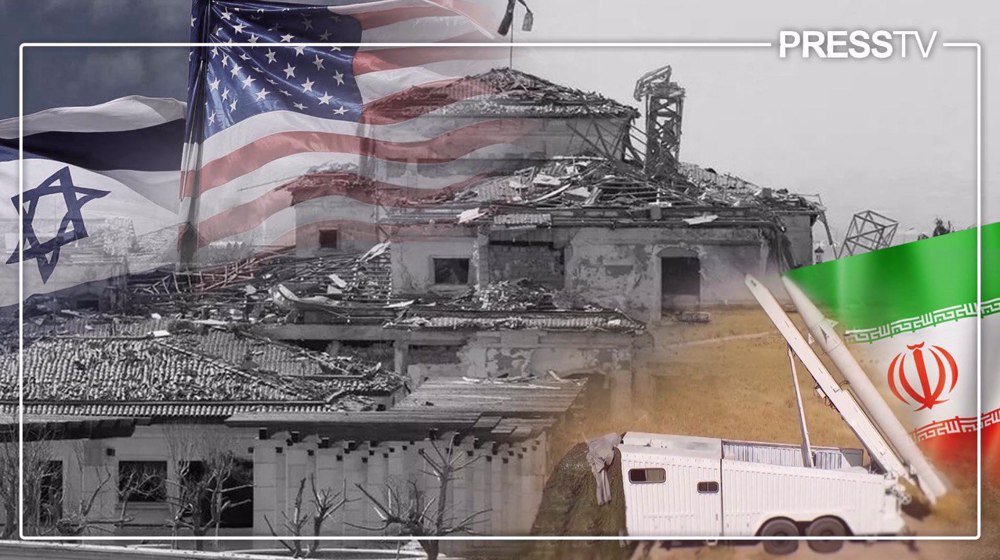
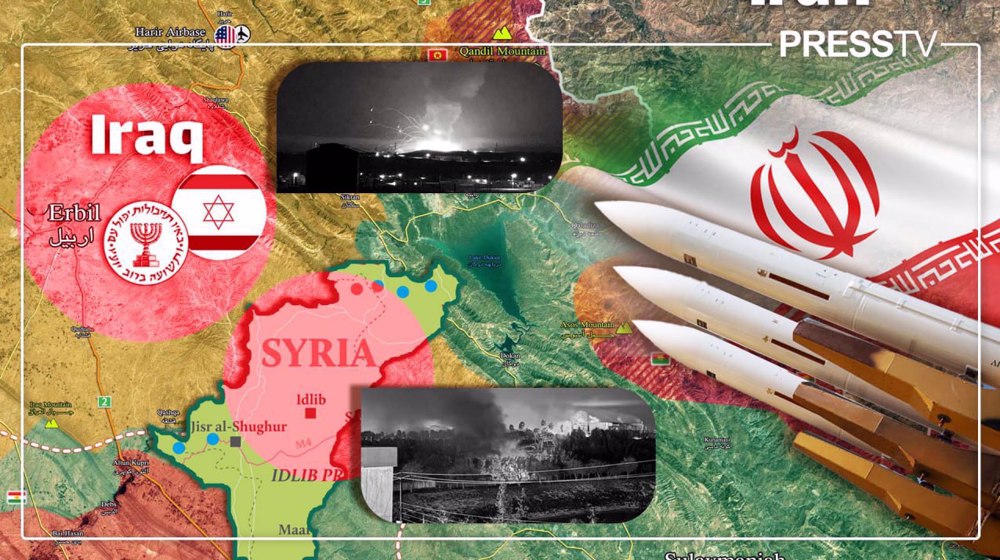
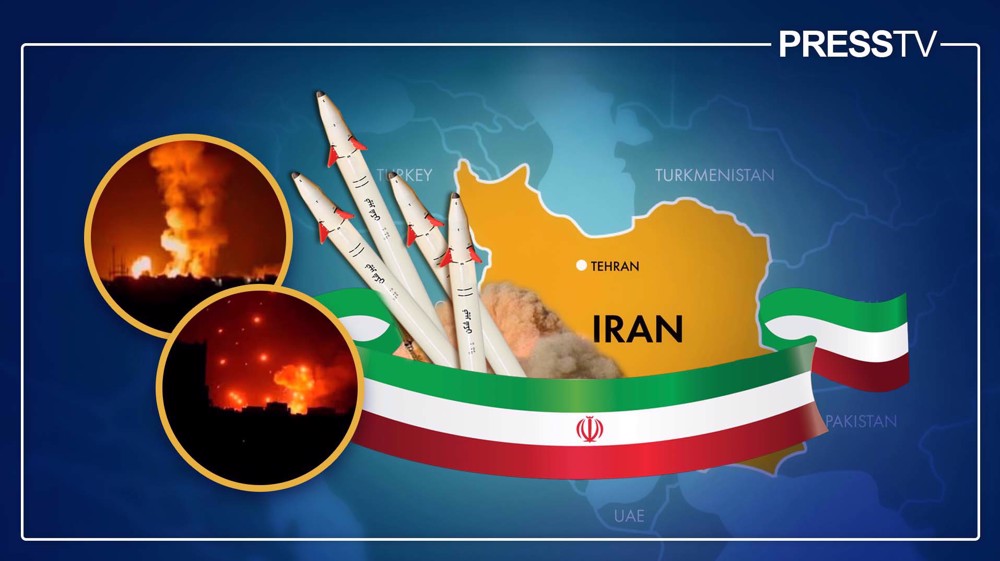
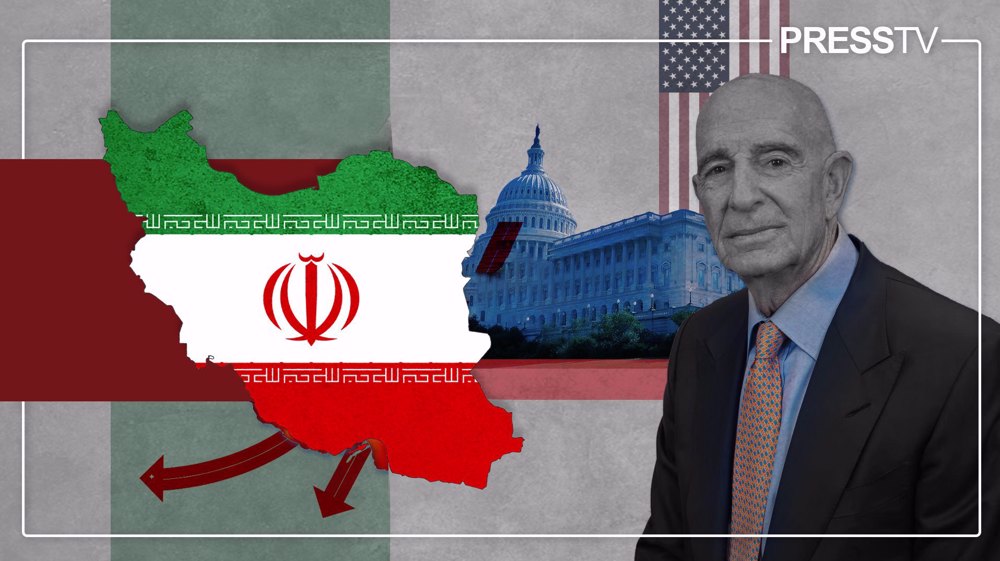
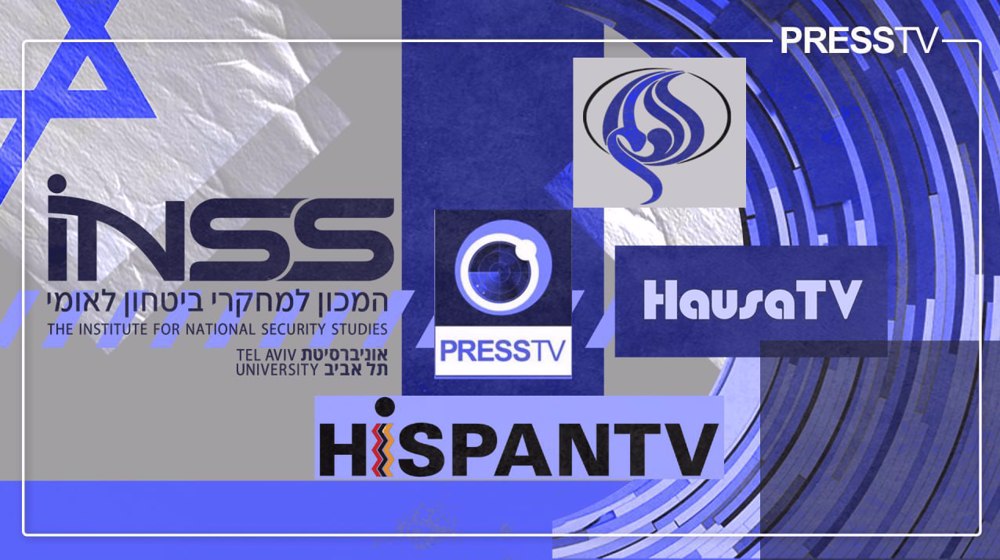




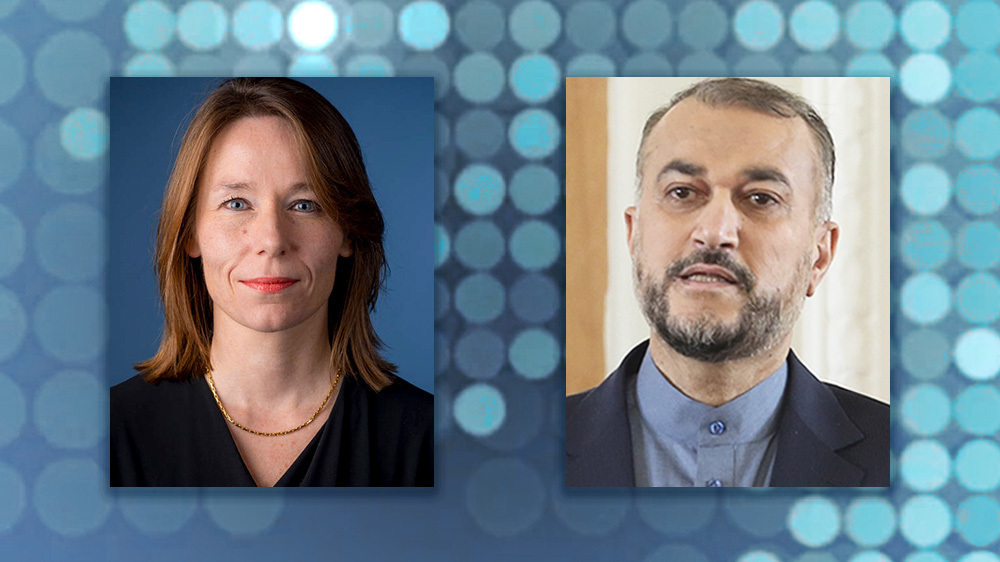
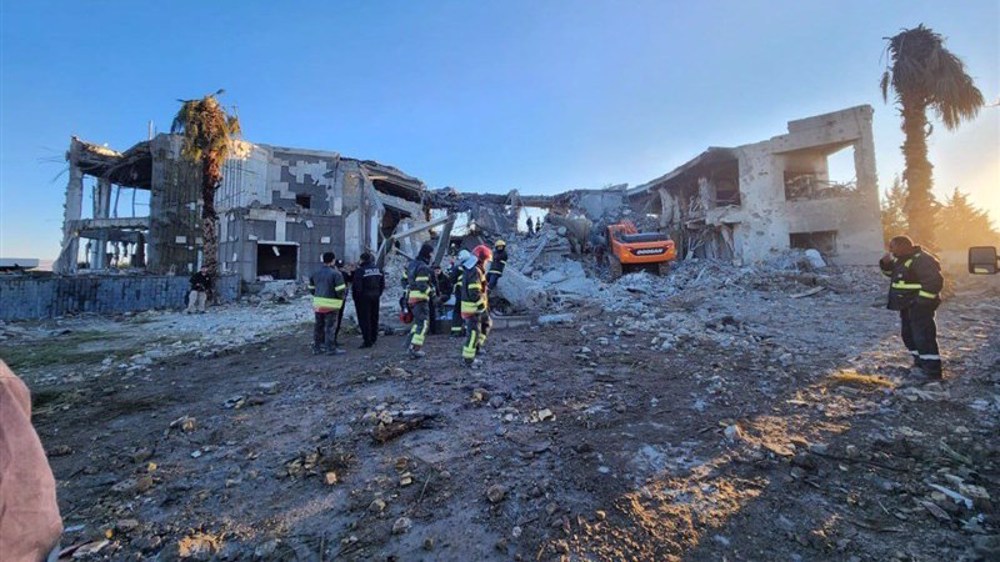
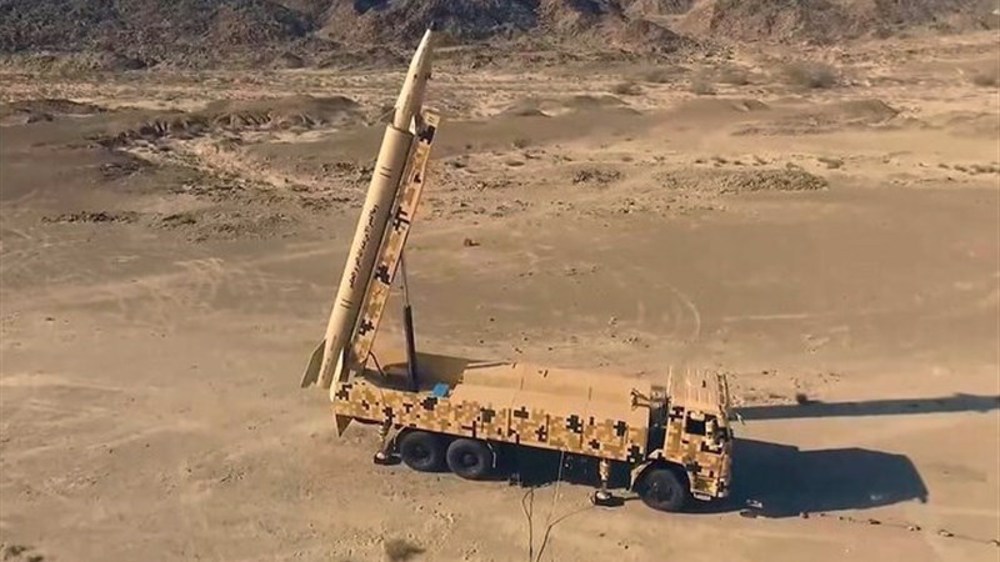
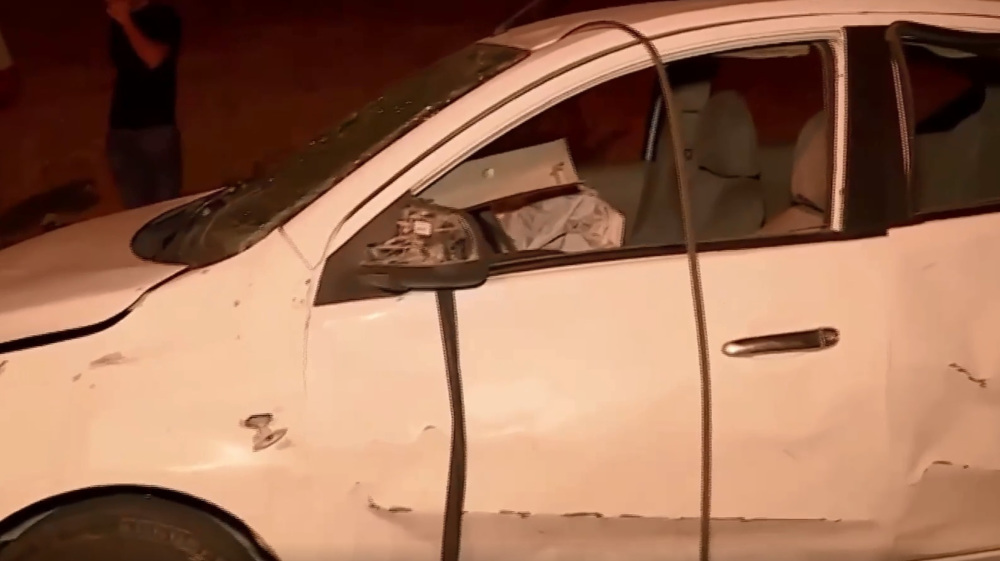
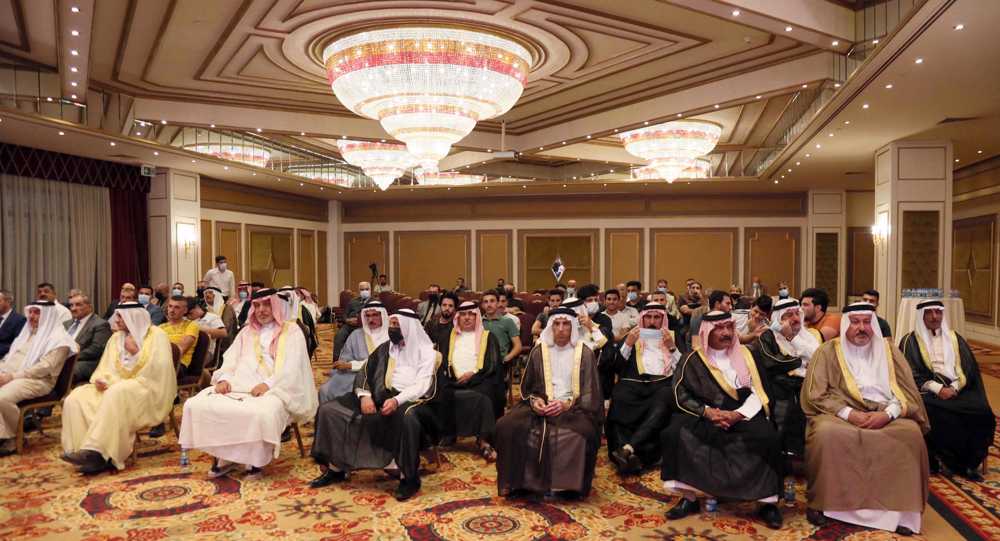

 This makes it easy to access the Press TV website
This makes it easy to access the Press TV website